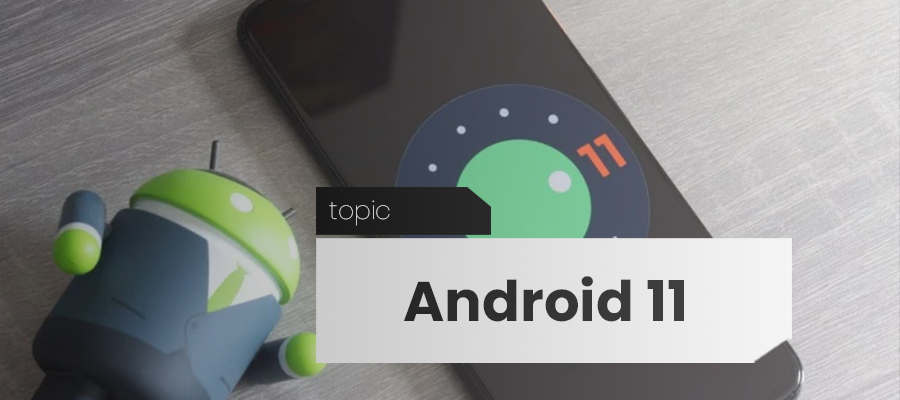Android 11 is the upcoming eleventh major release and the 18th version of the Android mobile operating system, due for release in Q3 2020. Alphabetical release names for major Android versions were discontinued as of Android 10; therefore the OS was immediately branded as “Android 11”. The logo for the release features a dial turned to 11— a reference to the music mockumentary film This Is Spinal Tap.
A mobile operating system is an operating system for mobile phones, tablets, smartwatches, 2-in-1 PCs (that can be convert to a laptop mode or detach and work as a tablet mode) or other mobile devices. While computers such as typical laptops are ‘mobile’, the operating systems usually used on them are not considered mobile ones, as they were originally designed for desktop computers that historically did not have or need specific mobile features. This distinction is becoming blurred in some newer operating systems that are hybrids made for both uses.
Mobile operating systems combine features of a personal computer operating system with other features useful for mobile or handheld use,and usually including a wireless inbuilt modem and SIM tray for telephony and data connection. By Q1 2018, over 383 million smartphones were sold with 86.2 percent running Android and 12.9 percent running iOS. Android alone is more popular than the popular desktop operating system Microsoft Windows, and in general smartphone use (even without tablets) outnumbers desktop use.
Mobile devices with mobile communications abilities (e.g., smartphones) contain two mobile operating systems – the main user-facing software platform is supplemented by a second low-level proprietary real-time operating system which operates the radio and other hardware. Research has shown that these low-level systems may contain a range of security vulnerabilities permitting malicious base stations to gain high levels of control over the mobile device.
Mobile operating systems have majority use since 2017 (measured by web use); with even only the smartphones running them (excluding tablets) more used than any other kind of device. Thus traditional desktop OS is now a minority used kind of OS; see usage share of operating systems. However, variations occur in popularity by regions, while desktop-minority also applies on some days in regions such as United States and United Kingdom.
The first developer preview build of Android 11 was released on February 19, 2020, as a factory image for supported Google Pixel smartphones (excluding the first-generation Pixel and Pixel XL). It was intended for three monthly developer preview builds to be released before the first beta release, initially due in May, with a total of three monthly beta releases before the actual release. The release of the public beta was originally scheduled to take place on June 3 at Google I/O, which was ultimately cancelled due to the COVID-19 pandemic, so an online release event is currently planned instead. A state of “platform stability” is planned for June 2020, and the final release is expected to occur in the third quarter of 2020. Developer Preview 2 was then released on March 18, followed by Developer Preview 3 on April 23. On May 6, Google released an unexpected Developer Preview 4, as they pushed the whole roadmap for Android 11 forward a month, setting the date for the first beta for June 3.
Then on May 29, Google announced that the beta launch would be delayed due to nationwide civil unrest spurred by the death of George Floyd.
The first Beta was ultimately released on June 10, 2020.
New platform features included in Android 11 include enhancements to support for foldable smartphones (including support for hinge angle sensors), identification of standalone 5G NR networks, Project Mainline (servicing of system components via Google Play Store), and High Efficiency Image File Format (HEIF). Support for STIR/SHAKEN call authentication will also be included. Google also stated plans for a “dedicated conversation section in the notification shade”, the ability to only grant certain permissions to apps on a case-by-case basis (similarly to iOS 13), and to introduce stronger enforcement of the “scoped storage” system. If automatically rebooting after a system update, apps can automatically resume and regain access to credential-encrypted storage without authentication.
High Efficiency Image File Format (HEIF) is a container format for individual images and image sequences. It was developed by the Moving Picture Experts Group (MPEG) and is defined as Part 12 within the MPEG-H media suite (ISO/IEC 23008-12). MPEG claims that a HEIF image using HEVC requires about half the storage space as the equivalent quality JPEG. HEIF also supports animation, and is capable of storing more information than an animated GIF or APNG at a small fraction of the size.
Android 11 comes with a new “recent apps” UI and the ability to undo an inadvertent closing of a recent app, as well as the ability to tweak gesture sensitivity. Ethernet tethering is supported when the device is connected to a USB-to-Ethernet adapter.
The above is a brief about Android 11. Watch this space for more updates on the latest trends in Technology.
